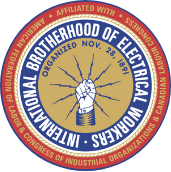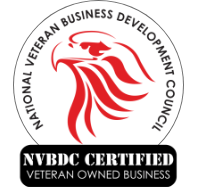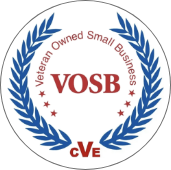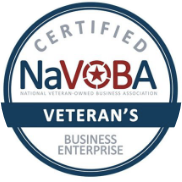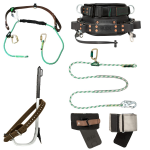Linemen and other electric utility workers have a very important role; they keep the electrical system that provides homes and businesses with electricity running. These professionals are responsible for installing, maintaining, and repairing electrical power systems and the auxiliary equipment which includes powerlines, streetlights, transformers, and more. Their work helps prevent lengthy power outages that can be inconvenient and even dangerous.
Skilled linemen are in demand as they are needed to keep our electrical system running. Becoming a lineman can put you on a good career path as they earn an average annual salary of $66,500. Many linemen are also union and work for electrical utility companies. However, those interested in becoming a lineman must also understand that this job is dangerous and comes with a higher than average risk of injury or death. This is why lineman must undergo thorough training and complete an apprenticeship before finding work as a journeyman lineman.
If you are interested in a career as a lineman, you must follow the proper steps to begin your training and start your career. This is a highly specialized job that requires hands-on and classroom training. Those pursuing a career as a lineman must understand the basic responsibilities of the job and the skillset needed, as well as how and where to start their training. In this guide, we will cover the steps you must follow to start your career as a lineman. We will also cover the best schools and training programs that you can attend to complete your classroom and hands-on training.
Divergent Alliance is a trusted supplier of lineman tools and other electrical utility tools for lineman and utility workers in the Chicago area. Contact our staff if you or your business need dependable tools from the industry’s top manufacturers.
What is a Lineman?
As mentioned above, a lineman is a technician that is responsible for installing, maintaining, and repairing electrical power systems and auxiliary equipment. Linemen must make sure that the entire system, from the power plants to the homes and businesses receiving the power, is in working order. As a lineman, you can expect to work on overhead structures like powerlines and streetlights, as well as underground trenches and vaults.
A lineman must be knowledgeable of how the entire electrical power system works to diagnose and repair issues and provide effective maintenance. The following are the main responsibilities of journeyman linemen:
- Installation and repair of the various equipment of electrical power systems
- Project management including planning and supervising large projects
- Safety management including ensuring that OSHA and Customer Safety Requirements are followed
- Management, including supervising groundmen and apprentices
Skills Required for Linemen
It is very important for anyone interested in becoming a lineman to understand the dangerous nature of the job. Linemen work on electrical equipment that has thousands of volts of live electricity running through it. It is also possible that the equipment will need maintenance or repair in inclement weather including rain, snow, and windy conditions. Those who are interested in becoming linemen must be strong and healthy enough to climb poles with confidence and be comfortable working with high-voltage systems and heavy equipment.
The following are important skills a lineman should have:
- Ability to perform maintenance and repairs on the equipment
- Skills in mathematics including geometry, algebra, and industrial math
- Knowledge of basic public safety and security measures
- Knowledge of building and construction
- Knowledge of tree trimming
- Ability to climb poles and work at high altitudes
How to Become a Journeyman Lineman
Before becoming a journeyman lineman, you must start as an apprentice lineman. Apprentice linemen need at least a high school diploma or equivalent and a passing grade in high school algebra to start their apprenticeship. It is possible to get a position that includes a four-year paid apprenticeship with both on-the-job and in-classroom training.
It is also beneficial to earn a two-year associate’s technical degree or certification from a trade school before starting your apprenticeship.
Lineman Schools and Training Programs
If you are interested in completing industry training or an associate degree before starting your apprenticeship, there are many options available. You can choose to get training at an industry training center or through a program at a college or university. Search for training centers and programs in your area to know your options and choose your preferred program.
The following are lineman training facilities and programs throughout the U.S.:
- Southeast Lineman Training Center: The Southeast Lineman Training Center (SLTC) in Trenton, GA is one of the best lineman training centers in the U.S. They offer two programs: a 15-week electrical worker program and a 7-week communications worker program. The electrical program includes classroom and field training and certification and covers transmission, substation, and CDL training. The communications program covers telecom linework. Financial aid is available.
- North American Lineman Training Center: The North American Lineman Training Center (NALTC) in McEwen, TN is a smaller institution with a low instructor to student ratio. Their program covers transmission, distribution, conversion, transformers, and other important subjects and there is an option to add CDL training. Financial aid is available from this school.
- Northwest Lineman College: Northwest Lineman College (NLC) is one of the older lineman schools with campuses in Meridian, ID; Oroville, CA; Denton, TX; and Edgewater, FL. NLC offers an Electrical Lineworker Program and programs for Telecommunications Lineworker and Gas Distribution. The Electrical Lineworker Program trains new linemen to work on powerlines and heavy machinery. You can get financial assistance from NLC and housing assistance.
- Vocational Outside Line Training Academy: The Vocational Outside Line Training Academy (VOLTA) in Warrenton, OR has a ten-week lineworker program. VOLTA does not offer financial aid but there are scholarships available that can help.
- Texas A&M Engineering Extension Service: The Texas A&M Engineering Extension Service (TEEX) offers programs for linemen in electrical and telecommunications.
- Lineman Institute of the Northeast: The Lineman Institute of the Northeast is a small school in Saugerties, NY that offers a 15-week course in lineworker and CDL training.
- Southside Virginia Community College: Southside Virginia Community College (SVCC) in Blackstone, VA offers an 11-week lineman program. This school is one of the preferred schools for the Virginia, Maryland, and Delaware Electric cooperative territory.
- American Line Builders Joint Apprenticeship & Training: The American Line Builders Joint Apprenticeship & Training Center (ALBAT) in Medway, OH provides training programs, apprenticeships, and continuing education for linemen. Their training programs include Cable Splicing, Outside Line, Substation, Traffic Signal, Transmission, and Underground Residential Distribution (URD) among others. They take a systemic approach to their training to ensure linemen learn the necessary skills and get effective safety training. ALBAT also works with the IBEW in Kentucky, Maryland, Ohio, Washington DC, Illinois, Indiana, and Michigan through their apprenticeship program. A portion of every lineman’s and electrician’s check in the IBEW goes to ALBAT training programs.
Lineman Tools and Equipment from Divergent Alliance
If you are interested in starting a career as a lineman, you should first consider the skills needed as well as the inherent danger of the job. Once you decide to proceed, you can choose a training program and an industry training center or college that will help you learn the skills you need to start an apprenticeship. After completing your apprenticeship, you will be able to get a position as a journeyman lineman.
In order for linemen to do their jobs safely and effectively, they need reliable tools. At Divergent Alliance, we supply a variety of lineman tools and equipment from the top manufacturers of the industry including Greenlee, Huskie, and Salisbury. Give us a call at (847) 531-0559 to learn more about the lineman and electrical utility tools we provide to professionals in the Chicago, IL area.

